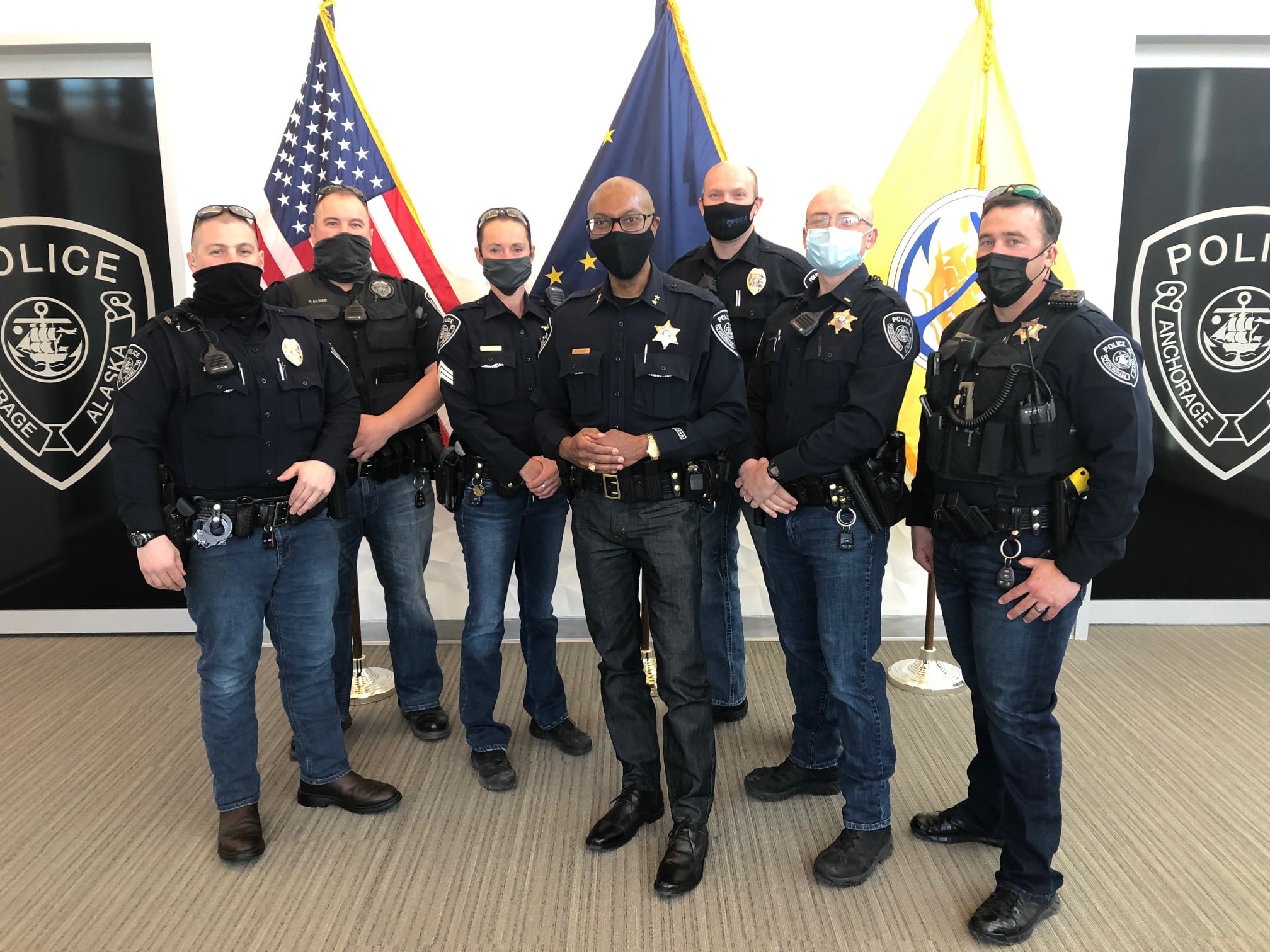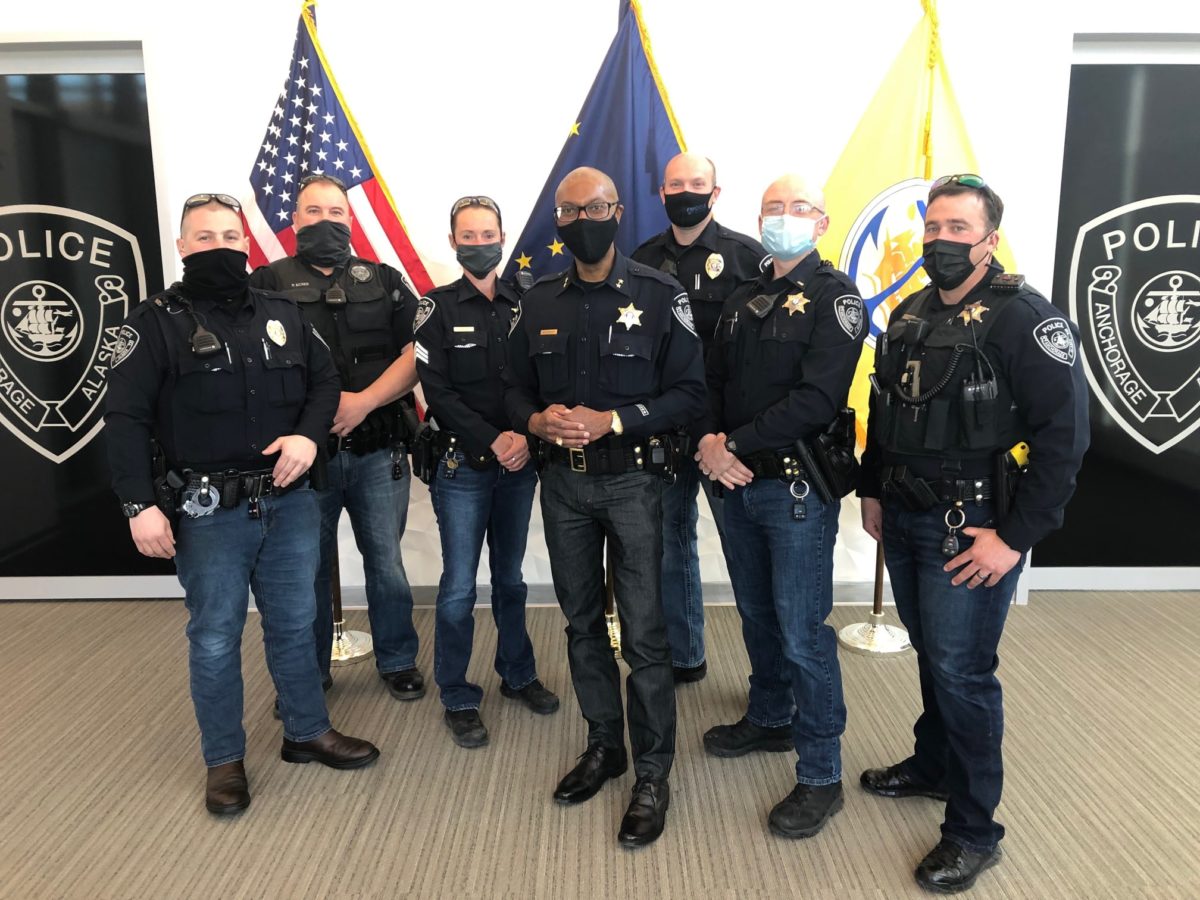Newsletter
Don’t Let Cops Co-Opt Denim Day
Her jeans were so tight, she couldn’t have been raped, the judges said.


Don’t Let Cops Co-Opt Denim Day
by Meg O’Connor
Today is Denim Day, an international day of solidarity with survivors of sexual violence. Its name is a reference to a 1999 Italian Supreme Court decision to overturn a rape conviction because the victim was wearing jeans. “It is nearly impossible to slip off tight jeans even partly without the active collaboration of the person who is wearing them,” members of the then-male-dominated Italian Supreme Court said. So, the court ruled, the victim must have consented.
The ruling sparked intense backlash across the Italian political spectrum and demonstrations by some female Italian Parliament members. Since then, people have continued to wear jeans on the last Wednesday in April to show solidarity with survivors of sexual violence and make a stand against victim-blaming.
But the day has, annoyingly, been co-opted by police and prosecutors, who have shown time and again that they consistently blame victims and are woefully inadequate at responding to sexual violence. Yet the Denim Day origin story only furthers the case that the criminal legal system is not equipped to provide survivors with justice.
The defendant in the case, a 45-year-old driving instructor accused of raping his 18-year-old student in 1992, was initially acquitted of most charges stemming from the alleged assault. A prosecutor appealed the acquittal, and in 1998 the man was convicted of additional offenses and sentenced to two years and ten months in prison. The conviction was overturned the following year. At the time, Italy’s highest court was made up of 410 male judges and just 10 female judges.
The rest of the Supreme Court panel’s ruling—written by a male judge named Aldo Rizzo—was nearly as obscene as the judiciary’s comments about jeans. The judges implied that the victim may have been motivated to claim she was raped in order to hide her sexual activities from her parents; that if the victim felt any guilt or shame about the incident she may have been fabricating the case; and that because she did not “resist with all of her strength,” she may not have been sexually assaulted, because it was somehow “illogical to suggest that a girl would passively submit to rape.”
Seven years of recounting what happened to you only to end up with the nation’s highest court telling you you’re a liar and you were never raped doesn’t sound particularly healing.
Many survivors of sexual violence want non-police options when it comes to seeking justice after an assault. Decades of relying on law enforcement to respond to sex crimes have not reduced the prevalence of sexual assault, nor has it consistently produced positive outcomes for victims. Instead of throwing more money at something that clearly isn’t working, cities could invest in ways to equip survivors with financial resources and support systems to help them leave violent homes, or provide victims with the extensive mental health care necessary to overcome trauma. But survivors who seek other ways to heal, like restorative justice, have limited options available to them and are often left choosing between seeking punishment or doing nothing at all.
The options for recourse are even worse for incarcerated people, who are often left out of the conversation when reckoning with sexual assault. As Val Kiebala wrote for The Appeal last week, reporting a sexual assault in prison often leads to consequences for the victim, rather than the perpetrator.
Cynthia Alvarado told The Appeal that she was raped in jail by a Philadelphia correctional officer more than 10 years ago. She was then sentenced to life in prison for a murder she didn’t commit. Her sentence has since been overturned. When discussing her decision not to report the rape while incarcerated, Alvarado said, “Who was I going to tell? The same people that were oppressing me? The same people that had the keys to my cell?”
What happened to Alvarado isn’t uncommon. From 2013 to 2018, the number of reports of sexual abuse in prisons and jails nationwide more than doubled, from approximately 13,500 to 28,000, according to the Bureau of Justice Statistics.
Yet even when incarcerated people do report sexual assaults, prison administrators tasked with investigating those reports rarely substantiate the allegations. Often, staff claim an investigation determined the assault was “unsubstantiated” or “unfounded,” meaning it was deemed false or baseless. In 2019 and 2020, incarcerated people reported a total of 75 instances of sexual misconduct or harassment by the staff of one Central Pennsylvania state prison, SCI Muncy. Not a single one of those instances was substantiated.
“People are bravely stepping forward to report sexual abuse, only to be failed by the people in charge of their safety,” said Linda McFarlane, executive director of Just Detention International, a human rights organization that aims to end the sexual abuse of incarcerated people.
“What corrections officials are saying, essentially, is that in completely locked detention facilities, where they monitor and control every person’s movements, they can’t determine whether abuse has happened,” McFarlane told The Appeal’s Kiebala.
So if law enforcement agencies truly want to honor the spirit of Denim Day, they should start by taking a good hard look at themselves.
In the news
Contact us at newsletter@theappeal.org so we can feature your work here.
Video shows Syracuse, New York police officers detaining a sobbing eight-year-old boy, who is Black, for allegedly stealing a bag of chips. [Antonio Planas and Suzanne Ciechalski / NBC News] From The Appeal: Police almost sent a five-year-old child to jail.
At a sheriffs’ forum in Riverside, California, County Sheriff Chad Bianco said homelessness “has nothing to do with homes or lack of homes. It’s a drug-induced psychosis.” Bianco was previously a member of the right-wing militia, the Oath Keepers. [Vishal P. Singh / Twitter]
In upcoming elections, Trump-aligned county sheriffs may play a “uniquely aggressive role” in criminalizing election officials. [Jessica Pishko / Bolts]
All charges have been dropped against Pamela Moses, who was sentenced to six years for registering to vote. A probation officer had mistakenly told her she was no longer on probation and was able to vote. [Sam Levin / The Guardian]
The Supreme Court may overturn Roe v. Wade this summer. If they do, district attorneys in states that subsequently ban abortion will be the ones who decide whether or not to pursue abortion-related criminal charges. [Eleanor Klibanoff / Texas Tribune]
That’s all for this week. Feel free to leave us some feedback, and if you want to support our official relaunch, please donate here. Until next time, the work continues.
